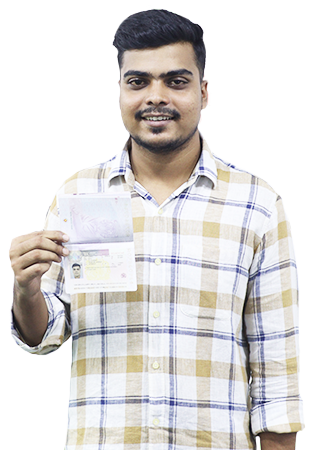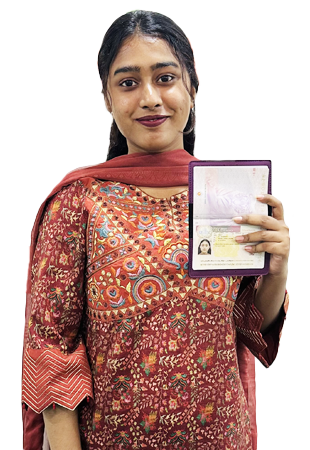Cost of Living in the UK for International Students
Studying in the United Kingdom is a wonderful chance for a quality education and a powerful educational experience. Nevertheless, it is important to consider and provide for the living expenses when being an international learner in this culturally and technologically diverse country. Although the United Kingdom has a good standard of living, it is well known that living in this country can cost a lot, from housing to bus fare, food, and other activities. Ensuring you have adequate knowledge of these costs will greatly help in financial planning.
Average student living expenses in the UK
| Particulars | London | Other Cities |
| Accommodation | £600-£800 per Month | £500-£600 per Month |
| Food/Housekeeping | £200-£300 per Month | £150-£200 per Month |
| Mobile Bill | £30-£50 per Month | £30-£50 per Month |
| Shopping | £50-£100 per Month | £50-£100 per Month |
| Leisure/Hang out | £50-£150 per Month | £50-£150 per Month |
| Travel/Transportation | £50-£100 per Month | £50-£100 per Month |
Accommodation
The UK is a recognized destination for quality schools and universities, genuine cultural attractions, and accommodation. Finding the right accommodation is among the first and most crucial tasks of any international student. The UK, therefore, offers different types of accommodation depending on the needs and conditions of an international student. There are many choices available starting from the university-managed halls of residences to create a supportive community feel, right down to private rental and shared apartments for those who prefer a more independent feel. This guide will provide you with general information on the kind of housing, which may be available to you, the likely charges for your accommodation and some tips to enable you to access your preferred house. It will also be beneficial to clarify your expectations and the expenses you will have when looking for an appropriate living environment while studying. All you need to do is find the right accommodation that will make your stay productive and enjoyable.
| Type of Accommodation | London | Other Cities |
| Private Room | £800-£952 | £640-£740 |
| University Residence | £600-£772 | £400-£504 |
| Apartment | £740-£1255 | £610-£975 |
| Utility Bills | £40-£45 | £35-£40 |
Food Price
Food takes up a large portion of living expenses after accommodation. As an international student, understanding food costs is an essential part of managing your budget and ensuring a comfortable stay. The UK offers a wide range of dining options, from affordable supermarkets and budget-friendly eateries to high-end restaurants and specialty eateries. The most popular dishes in the UK are fish and chips, Sunday roast, full English breakfast, and beef wellington. You can find Bengali restaurants in London's Brick Lane, Whitechapel Road, Hanbury Street, Woodthorpe Road, Romford Road, and Lillie Road places where you can get Bengali food, such as rice, bharta, dal, hilsa fish, chicken roast, and beef, you can eat low price. If you don't like to eat out and think it costs too much, then you can cook yourself, which is much more affordable than buying food. Navigating food prices can seem daunting, but with the right information, you can make decisions that fit your financial plan. The average cost of food and groceries in the UK for international students is £100–£200 per month for eating out. The approximate average price of some popular grocery products is as follows:
| Item | Quantity | Price |
| Milk | (0.25 liter) | 0.31 £ |
| Rice | (1kg) | 1.58 £ |
| Eggs | 12 | 2.94 £ |
| Chicken Fillets | (1 kg) | 6.56 £ |
| Tomato | (1kg) | 2.69 £ |
| Banana | (1kg) | 1.16 £ |
| Apples | (0.30 kg) | 0.64 £ |
| Onion | (0.10 kg) | 0.11 £ |
Transportation Charge

Students in the UK mostly prefer to use public transport to travel, as it is affordable and they get many student discounts. London has one of the best connected public transport systems in the world. London's traditional transport is Underground or Tube Trains, Bicycle, Bus, Train. Full-time students in London can get a 30% discount on public transport with a National Railcard. Different railcards are available to suit your age and needs; the Student Oyster Card is most commonly used by students. This includes discounts on Tube trains, London Overground, and National Rail services. It is recommended that students obtain a monthly pass for public transport, typically, amounting to £60. For long-distance travel, students can opt for inter-state bus services, or rail services, On average students should budget £90 to £120 for monthly transport costs. You can visit our blog to find out about transport costs for international students.
| Transport | Cost in London | Costs in Other Cities |
| Underground or Tube | £5.50 | £6.70 |
| Bicycle | £3: 30-minute | £3: 30-minute |
| Bus | £60 | £50 |
| Train | £80 | £60 |
| Trams | £50 | £40 |
| Taxi | £20 | £15 |
Entertainment Charge

Certainly, academic life is not just about books, exams, and evaluations. The cost of living for international students in the UK also includes entertainment charges. You will make a social circle, and you will need money to spend on your leisure time as well.
As a student, you may be on a budget so we can show you some of the free places in London and also allow you to glimpse the city's rich history, vibrant social scene, and culture. The names of those places are given below
|
|
|
| Buckingham Palace | London Eye | Big Ben |
|
|
|
| River Thames | British Museum | Oxford Street |
|
|
|
| Hyde Park | Tower Bridge | Portobello Road Market |
|
| |
| Houses of Parliament | Little Venice |
We have some popular ideas and how much it would cost you in the list below, based on when and how you plan to party:
| Activity | Price |
| Movie Tickets | £10-£15 |
| Restaurant/ Bar | £40-£45 |
| GYM | £180-240 yearly |
| Museums and Galleries | £5-£20 |
| Parks and Gardens | £5-£15 |
| Football Matches Premier League | £30-£100 |
| Theatre and Performances | £10-£30 |
| Music Festivals | £50-£100 |
Mobile and Internet Charges

The following is a continuation of other aspects of living expenses in the UK for international students, including mobile and internet prices. Staying in touch with loved ones is perhaps one of the most essential needs that should be fulfilled when a person is studying abroad. Foreign students will need to purchase a local SIM card with call and data charges, internet – Wi-Fi, and television charges, bearing in mind the increasing usage of social networks. For savings offers and the cheapest suppliers of telecom networks, look out. After completing the list of wants for your home and before you buy your Wi-Fi connection, compare the costs.
| Activity | Price |
| Prepaid SIM Package | £10 |
Read Time: 2 min | Total Reads: 453 | Published: 04 Jul, 2024




































